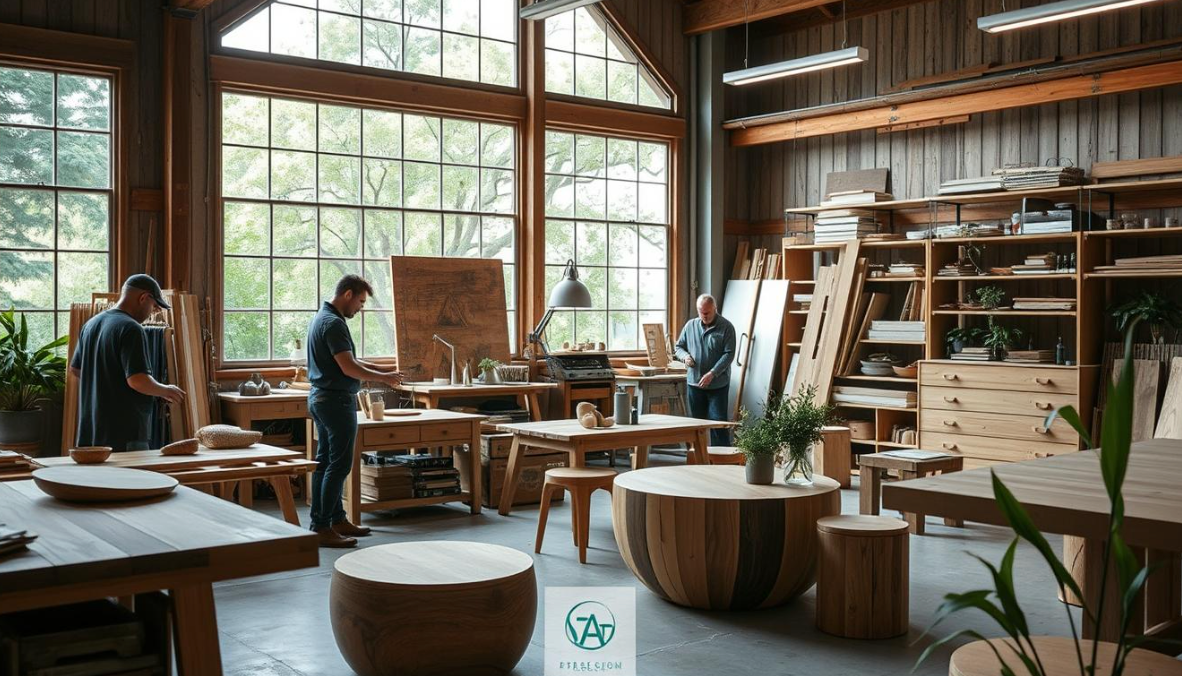In the face of dynamic changes in the market and the growing ecological awareness of consumers, an ecological approach to furniture production is gaining importance. Manufacturers are increasingly aware that the choice of appropriate materials and technologies not only affects the quality of their products, but is also a key element in meeting the expectations of conscious customers.
The use of ecological materials, such as certified wood and water-based paints, is becoming standard in the furniture industry. Moreover, many companies are deciding to introduce energy-saving technologies and renewable energy sources, which significantly reduces their carbon footprint.
Such activities are not only a trend, but also a response to changing market needs and concern for sustainable development .

The importance of ecological materials in furniture production
Ecological materials play a key role in furniture production. Their selection translates into a positive impact on the environment. Certified wood and alternative materials are becoming the standard, ensuring sustainable development and minimizing the negative effects of production.
The role of certified wood
Certified wood , such as those marked with FSC or PEFC certificates, ensures responsible sourcing of raw materials. Its use supports the protection of forests and ecosystems.

Thanks to ecological standards, certified wood contributes to sustainable development. In addition, the use of water-based paints and varnishes, compared to traditional solvent-based ones, contributes to less harm to the environment.
Alternative Materials and Their Benefits
Alternative materials such as bamboo, plywood and recycled materials are becoming
increasingly popular in furniture production. Their use allows not only
saving natural resources, but also reducing CO2 emissions.
Ecological approach to furniture production in 2025
In furniture production, environmental care is key, which starts with the right choice of raw materials. An ecological approach requires the use of renewable and recycled materials. Companies that prioritize sustainable development over quick profits become leaders in the furniture market.
Selection of raw materials and sustainable development
The choice of raw materials has a direct impact on the sustainability of the furniture industry. Furniture made of corrugated cardboard is gaining popularity, offering a number of benefits: it is lightweight, durable and environmentally friendly. In addition, its production requires less energy compared to wooden or metal furniture, which translates into a lower carbon footprint.
Minimizing production waste
Minimizing production waste is a key element of ecological furniture production. Waste processing and reuse in furniture production contribute to more efficient management of raw materials and significantly reduce waste.

In offices and event venues, cardboard furniture is becoming more and more common, as it is characterized by low production costs and easy recycling. This production model promotes sustainable development, fitting into the new ecological paradigm.
Ecological responsibility of furniture manufacturers
The modern furniture industry is struggling with growing consumer demands for ecological responsibility. Sustainable companies recognize the need to implement practices that minimize negative impact on the environment. Research indicates that 75% of companies believe that consumers will pay even more attention to ecological aspects in 2025.

The Role of Producers in Consumer Education
Furniture manufacturers are given an important role in educating consumers. Providing information about
benefits of choosing ecological solutions and adapting the offer to their needs can help shape conscious purchasing choices. Global trends in ecological responsibility and consumer expectations indicate that a responsible approach to furniture production contributes not only to environmental protection, but also to building brand trust in the eyes of customers.
The future of ecological approach in the furniture industry
The ecological approach in the furniture industry is becoming more and more important due to
growing social and ecological awareness among consumers. Companies see the need to modify their production processes to reduce emissions and adapt to changing market expectations. In this context, sustainable development is becoming a key factor influencing the strategy of furniture manufacturers.
In the face of demanding standards such as ISO 14001 or EMAS, companies are committed to implementing corporate social responsibility practices.
These activities benefit both the environment and the company's reputation in the local community and among investors. This trend also supports the development of sales of ecological products, which promotes long-term sustainable development.





